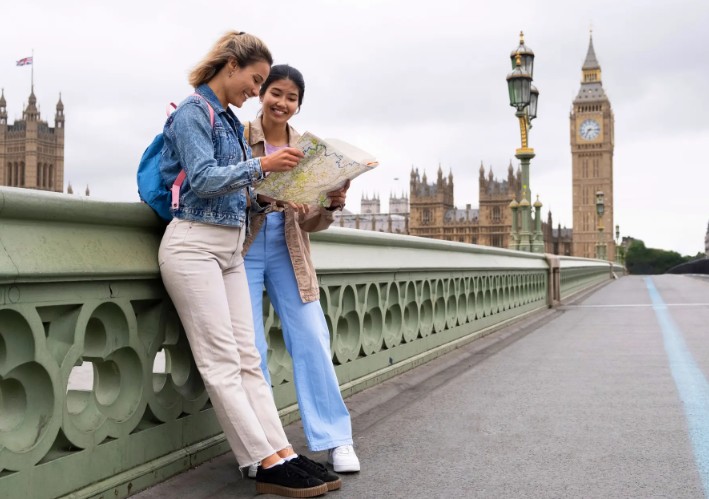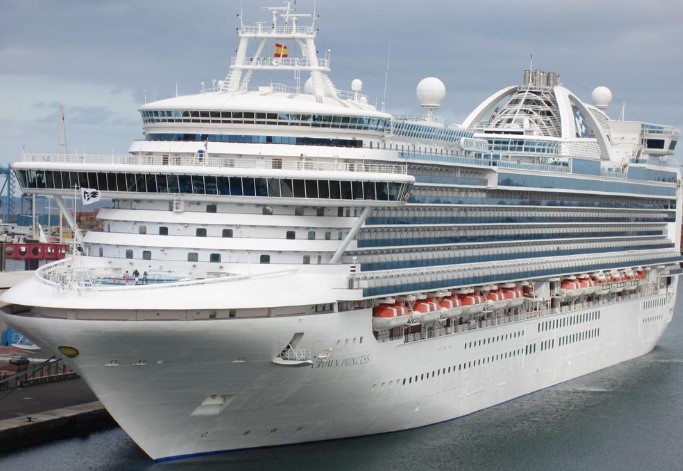Spain
Spain has banned all non-vaccinated Britons from entering the country. The ban is expected to last until at least 31 December, at which point the rules will be reviewed.
Travellers into Spain from the UK will need to show proof of a full course of a Covid-19 vaccination, with the second dose given at least 14 days before travel, in order to enter the country.
Documents
If fully vaccinated, visitors must present an in-date NHS Covid pass as proof of vaccination and fill out a passenger locator form.
Rules on arrival
Restrictions are being decided at regional level. Check the rules for the region you are visiting before you travel – the Spanish tourist board’s Travel Safe website has an interactive map showing the regional rules.
At a nationwide level everyone over the age of six must wear a face mask in enclosed public spaces, on public transport, and in crowded outdoor areas where it is not possible to socially distance.
Portugal
On entry, all travellers, regardless of vaccination status, must now show proof of a negative PCR or rapid antigen test taken 72 hours or 48 hours respectively prior to departure.
Documents
If fully vaccinated, present an in-date NHS Covid pass as proof of vaccination and fill out a passenger locator form.
Rules on arrival
There are different restrictions depending on whether you are travelling to mainland Portugal, Madeira or the Azores. Check entry requirements here.
If fully vaccinated, you must now also present proof of a negative test to enter indoor establishments, including nightclubs and bars, and to attend large events. The NHS Covid pass will be required in order for visitors to stay in hotels, go to the gym or eat indoors in restaurants.
Visitors are required to wear a face mask indoors.
Germany
Full-vaccination status or proof of recovery from Covid-19 is required to enter Germany from the UK.
Documents
If fully vaccinated, present a NHS Covid pass as proof of vaccination and fill out this online form providing details of any Covid certificates before departure.
Rules on arrival
Germany has announced a nationwide lockdown for the unvaccinated. Those who have not been vaccinated will be banned from accessing all but the most essential businesses, such as supermarkets and pharmacies.
Most facilities and attractions are fully open, although visitors are required to wear a mask.
France
Anyone over the age of 12 will need to provide proof they are fully vaccinated and show proof of a negative current PCR or antigen test taken no more than 48 hours before travel.
Documents
An in-date NHS Covid pass can be used as proof of vaccination. People from the UK also need to complete a “sworn statement”, proof of negative Covid test.
Rules on arrival
A health pass – the pass sanitaire – is mandatory for bars, restaurants, and entertainment venues, and has been extended to ski lifts. You can show your vaccination status via the NHS app.
Switzerland
The 10-day quarantine requirement for British travellers was removed on 4 December. Air and bus passengers aged 16 or more must show a negative PCR test done no more than 72 hours before boarding; the same applies to independent arrivals by road. All arrivals from the UK must report their arrival to the relevant cantonal office within two days and must complete a further test (antigen or PCR) after four to seven days in Switzerland, and must send the result of the second test to the relevant cantonal office. Find the relevant cantonal office.
Documents
Visitors need to fill in an entry form and present an in-date NHS Covid pass as proof of vaccination.
Rules on arrival
Proof of vaccination is needed to enter restaurants and bars and face masks are compulsory.
Italy
British travellers must show a negative test result carried out 48 hours prior to arrival in Italy, and present proof of full vaccination.
Documents
An in-date NHS Covid pass and a passenger locator form.
The rules on arrival
Italy has introduced tougher restrictions for unvaccinated people with the requirement of a Covid “super green pass” to access many public activities including entry to theatres, cinemas, music venues, sports events, restaurants and bars until mid-January. The pass shows proof of vaccination, or recovery from the virus within the last six months. The country will accept the UK’s proof of Covid-19 recovery and the NHS Covid pass as the equivalent to a green pass.
Netherlands
The Dutch authorities currently classify the UK as a “very high risk country”. This means that only fully vaccinated UK nationals, who can provide acceptable proof of vaccination, which includes the NHS Covid pass, will be allowed to enter the Netherlands.
Documents
If you are traveling from a high-risk country, you will have to show proof of vaccination, a negative PCR test result taken no more than 48 hours before departure or a negative antigen test result taken no more than 24 hours before departure, upon arrival. You also need to fill out a health declaration before boarding your flight. The Dutch government has published a checklist for travel to the Netherlands.
The rules on arrival
The country is currently in a partial lockdown with public venues including restaurants and bars closed from 5pm to 5am, and all events cancelled. Supermarkets are open until 8pm. Masks are compulsory. Those who break the rules could incur a fine of €95.
Greece
Greece is open to those who are fully vaccinated. Visitors who have had Covid can enter the country in the 180 days after they have recovered from their infection – a recovery certificate can be issued 30 days after the day of the first positive coronavirus test. Those who are unvaccinated or who cannot show proof of recovery from Covid will need a negative PCR test result no older than 72 hours or a rapid test no older than 48 hours.
Documents
A passenger locator form must be filled out before travelling to the country. One PLF should be submitted per family.
Rules on arrival
Random testing is carried out and you will need your in-date NHS Covid pass to enter most indoor venues including bars, restaurants, and theatres. Face masks are compulsory in indoor establishments.
Ireland
New rules introduced on 5 December mean that UK travellers will be asked to show a negative antigen test carried out no more than 48 hours before arrival or a negative PCR test which was carried out no more than 72 hours before arrival.
Documents required
Everyone must complete a passenger locator form.
The rules on arrival
An NHS Covid pass is required to enter some indoor venues, including bars, restaurants and cinemas. Masks are compulsory in shops and on public transport. Pubs, restaurants and nightclubs have reduced hours and close at midnight.
United States
Travellers have to be fully vaccinated and will have to show a negative Covid antigen or PCR test, which must have been taken within one day of departure. Full requirements for pre-travel testing can be found on the CDC website and the US embassy website also provides useful information.
Documents
An in-date NHS Covid pass is needed, as well as the normal visa or an Electronic System for Travel Authorisation (ESTA) visa waiver to enter or transit the US. You should consult the US State Department website to determine which you will need.
Rules on arrival
Face masks are required in airports, shops and on public transport. Local rules may vary. Indoor venues ask for a digital proof of vaccine that can be easily verified.
*Correct at time of press on 7 December, please check latest travel advice/government updates






More Stories
Cruises from Fremantle: A Gateway to Memorable Journeys
Camping Axes: The Essential Tool for Outdoor Adventures
Why Poland Should Be Your Next Winter Destination: A Guide to Unforgettable Winter Escapes